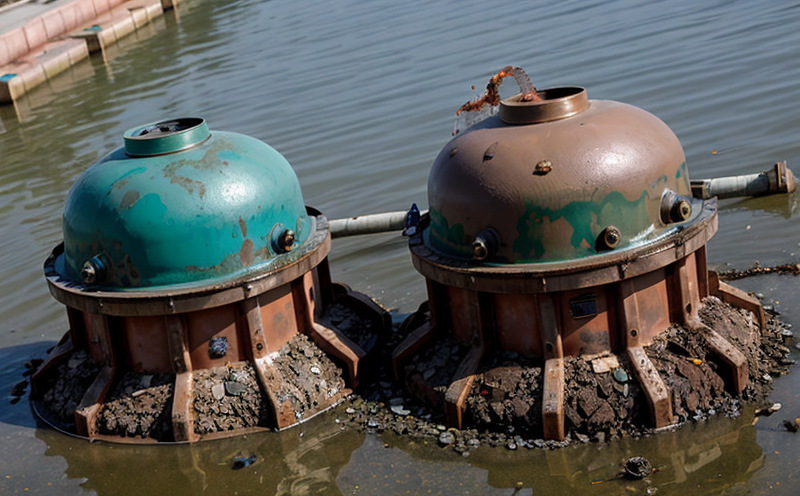ISO 7539-7 Slow Strain Rate Stress Corrosion Testing
The ISO 7539-7 standard specifies a method for determining the resistance of metallic materials to stress corrosion cracking (SCC) under conditions where the specimen is subjected to a slow strain rate. This testing procedure is particularly crucial in industries dealing with corrosive environments, ensuring that materials used are reliable and safe over time.
The primary purpose of this test is to evaluate how different alloys behave when exposed to specific corrosion-inducing environments while undergoing mechanical loading. Understanding SCC behavior helps prevent failures due to environmental factors, which can be critical in sectors like aerospace, petrochemicals, and marine engineering.
Materials such as stainless steel, nickel-based alloys, titanium, and their composites are frequently tested using this method. The test setup involves clamping a specimen between two grips while it is immersed in the corrosive medium at a controlled temperature. A constant strain rate is applied to the specimen, allowing for observation of crack initiation and propagation.
This testing ensures that materials used in high-stress applications are robust enough to withstand both mechanical stress and environmental conditions simultaneously. Compliance with this standard helps manufacturers meet stringent quality control requirements and regulatory standards globally.
| Material Group | Typical Applications |
|---|---|
| Inconel Alloys | Aerospace and nuclear industries for high-temperature applications. |
| Nickel-Based Superalloys | Gas turbines, jet engine components, and aerospace structures. |
| Stainless Steels | Mining equipment, oil rigs, and chemical processing plants. |
| Titanium Alloys | Aircraft parts and biomedical implants. |
Industry Applications
- Aerospace manufacturers: Ensure durability of critical components like turbine blades and fasteners under extreme conditions.
- Petrochemical companies: Verify material integrity in harsh, corrosive environments to prevent leaks and failures.
- Marine industries: Test hull materials for resistance against saltwater corrosion during extended service periods.
- Oil & gas sector: Validate the longevity of pipelines and storage tanks in challenging environments.
Eurolab Advantages
Our facility offers advanced testing capabilities tailored to meet the stringent requirements outlined in ISO 7539-7. With state-of-the-art equipment and experienced technicians, we ensure accurate and reliable results.
- Highly skilled personnel specializing in corrosion testing.
- Latest instrumentation for precise measurement of strain rates and environmental conditions.
- Dedicated labs equipped with the necessary facilities to conduct comprehensive tests under controlled conditions.
- Comprehensive reporting services providing detailed insights into material performance.
International Acceptance and Recognition
- This method is widely recognized by international standards bodies such as ISO, ASTM, and EN.
- The results from this test are accepted globally in regulatory compliance checks for various industries.





